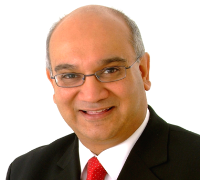MPs call for an end to the use of police cells for mentally ill
The prevalence of people with mental health issues who are detained within the criminal justice system is a scandal and the use of police cells should be made illegal, a group of MPs have concluded.
The prevalence of people with mental health issues who are detained within the criminal justice system is a scandal and the use of police cells should be made illegal, a group of MPs have concluded.
The Home Affairs Select Committee (HASC) report on policing and mental health, published on February 6, made several recommendations on the issue including proposing an amendment to the Mental Health Act which would ensure police cells are no longer stated as a place of safety for those detained under Section 136.
The HASC also found that too many NHS Clinical Commissioning Groups (CCGs) are failing to provide enough adequately staffed health-based places of safety that are available 24 hours a day, they must design local backup policies to deal with situations where places are occupied.
It concluded CCGs need to provide more places of safety in hospitals so the police are not forced into filling the gap.
In 2013/14, 24,489 people were detained under s.136. Of those, 6,028 were taken to a police cell. This represents a 22.3 per cent decrease on the previous year.
Health trusts, clinical commissioning groups, police forces and local charities had until December 31, 2014 to agree and sign a mental health concordat that specifies the level of service available locally for those in mental health crisis. The cross-departmental initiative has led to further sharp falls in the number of people detained in police cells but MPs believe the practice must stop completely.
There are 161 health based places of safety in England, 35 per cent of which do not accept anyone under-16 and 16 per cent do not accept anyone under 18. In 2013/14, 753 children under-18 were detained under s.136 and 236 ended up in a police cell.
Under 18s detained using s.136 are statistically more likely to be taken to a police cell than an adult: 31 per cent of under-18s went to a police station (236 out of a total of 753 in 2013/14) compared with 24 per cent of adults.
The HASC report said the fact that children are still detained in police cells under section 136 reflects a clear failure of commissioning by NHS Clinical Commissioning Groups.
It said The de facto use of police cells as an alternative relieves the pressure on CCGs to commission appropriate levels of provision for children experiencing a mental-health crisis. The NHS needs to make places available to look after such children locally.
It added that people encountering a mental health crisis should be transported to hospital in an ambulance if an emergency services vehicle is needed, because in many cases transportation in a police car adds to the distress.
Chairman of the committee Keith Vaz said the incarceration of children with mental health issues in police cells must cease immediately.
The cost to policing budgets of police officers in custody suites having to deal with mentally ill people is huge. This puts enormous pressure on officers who are not suitably trained and is the starting point for those that are mentally ill to enter the criminal justice system, he said.
The detention of over 6,000 adults under s.136 in police cells in England last year is far too high. These people are not criminals, they are ill and often are experiencing a great deal of trauma.
It is unacceptable that the police should be filling the gap because the NHS does not have the facilities to look after mentally ill people.
Doug Campbell, mental health lead for the Police Federation of England and Wales said ministers must do more to ensure the health service properly looks after people suffering mental health problems instead of leaving it to police officers.
Police cells are no place for the mentally ill and police officers are not the right people to look after those with mental health problems. We have been saying for years that this is an issue for the NHS and we are pleased that the HASC has reinforced this view.
Training of police officers is important so they can do their best to deal with people suffering from mental health problems bu


